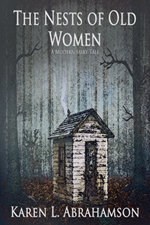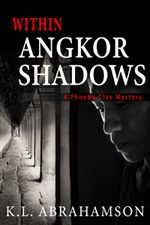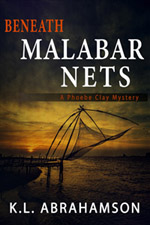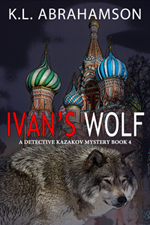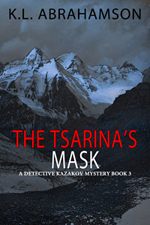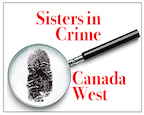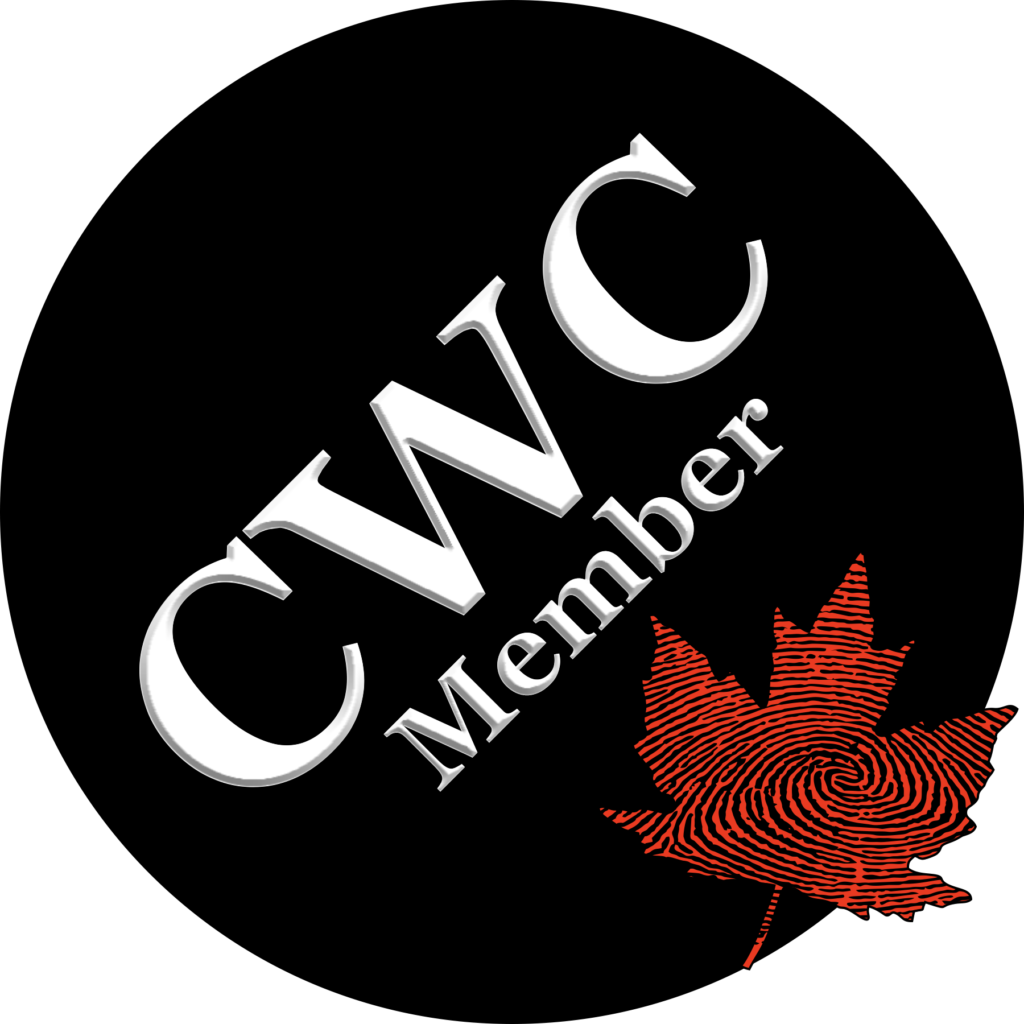Building Allies: Working with Libraries
In my last post I mentioned that libraries are an asset that can assist with promoting authors’ work if the books are in print. As libraries are also gathering electronic collections, this assistance may also help with building followers amongst e-book readers. I wondered how a writer or indie-publisher might build a relationship with their local library and contacted librarian (and indie author) Ryan Williams for his take on how writers might work with libraries. First of all, let me thank Ryan for giving us his time.
 1. How should (or can) a writer approach a local library about carrying their book? Does this work for Indie Authors as well?
1. How should (or can) a writer approach a local library about carrying their book? Does this work for Indie Authors as well?
Talk to them, show that you can be a partner in helping the library. Many libraries will take books as donations, but reserve the right to add it to the collection or not depending on their selection policy. Some libraries do maintain local collections and will add local materials, but that might not include your novel if that doesn’t fit the selection policy for that library. If you haven’t made a connection with your local library then all they have to go on are reviews (or lack of reviews). Honestly, Indie authors may encounter resistance from some librarians, while others will think it’s just great. You really won’t know until you talk to them.
 2. How can a local library help promote an author?
2. How can a local library help promote an author?
Standard disclaimer, libraries are going to vary quite a bit. The best idea is simply to go in and talk to the librarian. That might not be the person checking out the books, but it could be! On our library website for each location we list the library manager for each location, so sometimes with minimal research you’ll know who you want to talk to. Calling ahead, identifying yourself as an author and ask to set up a time to talk can’t hurt.
That said I don’t think I’d approach it as the library helping to promote the author. Instead I’d approach it as something you can do to help the library. Many performers, storytellers, jugglers, etc. work the library circuit and charge for their programs. Tell the librarian that you’d be happy to do a program and be prepared to pitch a couple ideas. It might be about your background or books, or that might be only a piece of what you’re talking about. It could also be about your trip to Burma and how that has influenced your writing, or a program for teen writers, or whatever you think about doing. You could charge or not, your decision, but by giving the library an exciting program they’re going to be more enthusiastic. Given library budgets, you could even say that you’ll waive the fee. Libraries may produce publicity for the program which includes your author bio/pic/covers, etc (that you’ve provided).
It also can’t hurt to partner with a local bookstore to sell copies of your book at the event.
And after all of that, it’s possible no one will come. But if you’ve got an interesting program that isn’t exclusively focused on self-promotion it’s far more likely that library staff and patrons will be interested in coming.
3. Aside from asking a library to carry their book, what can a writer do to work with local libraries to promote their books?
A book sitting on a library shelf isn’t necessarily any more noticeable than any other book online. But if your local librarian loves your book? Then she’s going to hand-sell that to anyone that she thinks might be interested. Librarians do book talks and reader’s advisory all the time. If you’ve presented an engaging program for your library, if you’ve been a helpful partner, and if the librarian actually likes your book? Well, then you’ve got one of the best possible advocates for your books.
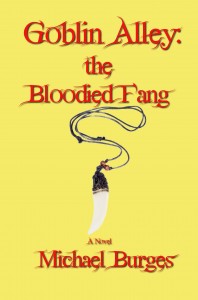 4. What success have you had with working with local libraries?
4. What success have you had with working with local libraries?
Since I work in the local library I haven’t wanted to do anything that suggests I’m using my position to promote my business, so I haven’t asked for the library to add my indie books. There are a couple traditionally published books that have my shorter work in them, like the Star Trek anthology, but otherwise none of my work is listed in my library. If patrons independently suggested the library add copies that’d be one thing, but I’m not going to use my position to get my books into the library.
I have, however, used my knowledge to benefit our patrons and present programs. Sometimes that’s working with other authors. I’ve got a program coming up where I’m going to teach local folks how easy it is to publish their work on the Kindle and other platforms. I think it’ll be a lot of fun but it’s not going to be about my work beyond mentioning that I do have experience working with these sites.
 5. For an Indie Publisher, how should they approach libraries? Is this different than for authors?
5. For an Indie Publisher, how should they approach libraries? Is this different than for authors?
A publisher is a publisher. It’s a business. I could easily see Glittering Throng Press (my publishing business at www.glitteringthrongpress.com) sending out book catalogs to libraries just like I’ll send to book stores. I’m also interested in co-op displays in libraries. I don’t think many publishers are doing this right now with libraries, but as book store spaces shrinks I could see a publisher doing an co-op placement where they provide the books to the library at no cost in exchange for placement. Free books for the libraries, better exposure for authors, and a benefit for readers. I’d also like to approach Friends of the Library groups about selling e-book gift cards as a promotion tool for them, give them a deep discount on the cards, and have a little desk display or something with the cards for them to sell. There’s over 9,000 public libraries in the USA, that’s a lot of potential avenues to promote material. I think going forward into the future libraries are going to be more critical at generating buzz and interest in an author’s work.
So yes, I think there’s a difference in approach between publishers and authors. An individual author is making a one-on-one connection with librarians and library patrons, while a publisher is developing more of a business relationship with the library.
6. And beyond the libraries, how successful have you found the loss leader approach to selling your fiction? Are there other methods of promotion you’ve tried and how have they worked for you?
I strongly agree with folks like Dean Wesley Smith when they say that the best promotion is writing more. As a writer that should be our first priority. You’ve got to keep the material flowing so folks can find more material. Kristine Kathryn Rusch was just talking about this in her recent post on Comparisons (http://kriswrites.com/2011/08/10/the-business-rusch-comparisons/), any promotion you do creates a short-lived blip in sales. It can become very time consuming if you’re spending all your time trying to keep that ball up in the air.
For a year I released a new e-book each week. Most have been freely available online for a week at a time on my publisher site, while selling as e-books. One of the best things about that was simply getting out new material each week. I’d originally planned on continuing that all this year but I’ve recently decided to refocus my priorities. So now with short fiction I’m putting more of an emphasis on sending stories out to traditional professional markets, places like Analog Science Fiction or The New Yorker. If a story doesn’t sell after making the rounds to the major markets I’ll still release it as an e-book, because I believe in the stories I write. Just because a story doesn’t sell to a major market doesn’t say anything much about the quality of that story. I’d just rather get paid pro rates first, and gain the exposure of having the story out, and then put it up as an e-book afterward. The next story coming out is in On Spec Magazine, I believe in their Summer 2011 issue, so I’m looking forward to that, it’s a great magazine for speculative fiction.
In the meantime I’ll continue to feature various stories on my publisher site, and in the process I’m revisiting blurbs and sometimes covers, updating the e-books before the story gets featured. The first I’ve done is “Alley Cat” by Michael Burges, which is a fun story set in the same universe as my first Goblin Alley novel, Goblin Alley: the Bloodied Fang. I don’t know if I’ll get one up each week, but I plan to update fairly often.
I have tried other methods. One of my Filming Dead Things novelettes, Farm of the Dead Things by Tennessee Hicks, is available pretty much everywhere for free and includes sample chapters of the first novel in the Dead Things series. That’s been downloaded thousands of times and the sales of the series have increased since it went free. The second novel in the series, Dreaming Dead Things, is due to be released in the next few weeks and I think that’ll have an even bigger impact just because there’s going to be more available for the folks that enjoy the series. Next year I’ll follow up with the third novel, Killing Dead Things.
Beyond loss leader sorts of experiments I’ve maintained an active presence on Twitter (ryanmwilliams) and Facebook where I have public pages for each pen name. I don’t know if those lead to more sales, I think the writing has more to do with sales, but Twitter and Facebook do provide an opportunity to engage with readers. I enjoy that and enjoy following the feed from other folks. Lately I’ve been exploring Good Reads more and want to do more with that than I’ve been doing. Plus I have websites for each pen name and my publishing site. I look to the sites as avenues for readers to find out what’s available, and what they might want to read next. Particularly the series, I want it to be clear what’s next.
I don’t have any hard data to show whether or not social media, websites, or message board participation increases sales. And I don’t worry about it. I do those things because I enjoy it, not because it increases (or not) sales. I do know that they don’t help me get more written (having the opposite impact), so I have to watch that and make sure I get my words in.
Bottom-line on promotion: write more!
Thanks for asking the questions, I’ll stop now before I hit 2,000 words!
And thank you, Ryan, for this wealth of information.
Ryan Williams has worked for over twenty years in libraries, currently managing a small town library in Tenino, Washington. Like Dalton Hicks from his Goblin Alley series (written as Michael Burges), he runs long distances, working up to ultra-endurance events. He also hopes to ride the Tour Divide mountain bike race from Canada to Mexio. He writes a wide variety of fiction, including urban and contemporary fantasy, science fiction, horror, and mystery under several different pen names. He has sold stories to On Spec Magazine, Star Trek: Strange New Worlds and Alien Skin Magazine. He holds a master degree from Seton Hill University in writing popular fiction, and as a member of the Oregon Writers Network, Michael also graduated from the master class taught by bestselling authors Dean Wesley Smith and Kristine Kathryn Rusch. Find him online at www.ryanmwilliams.com or on Twitter as ryanmwilliams.


